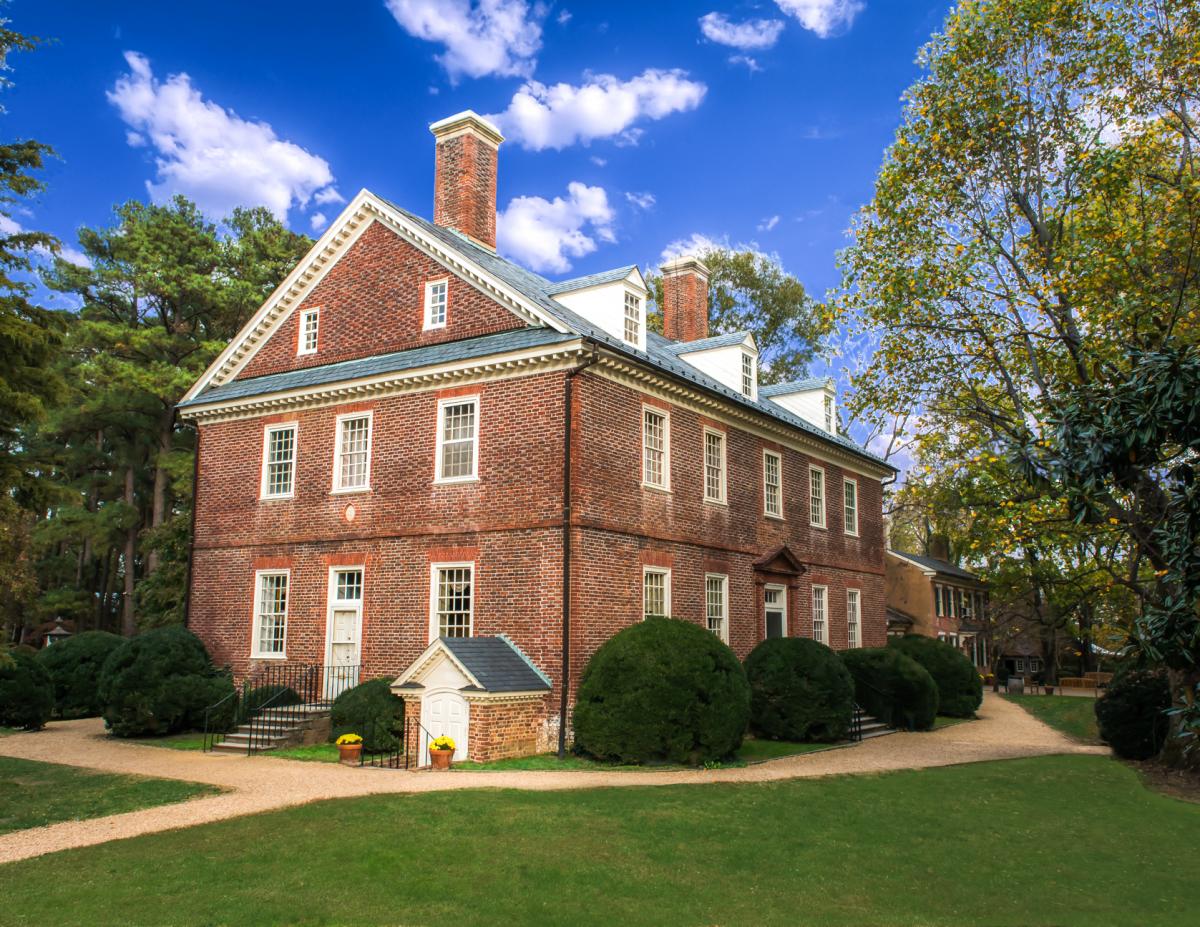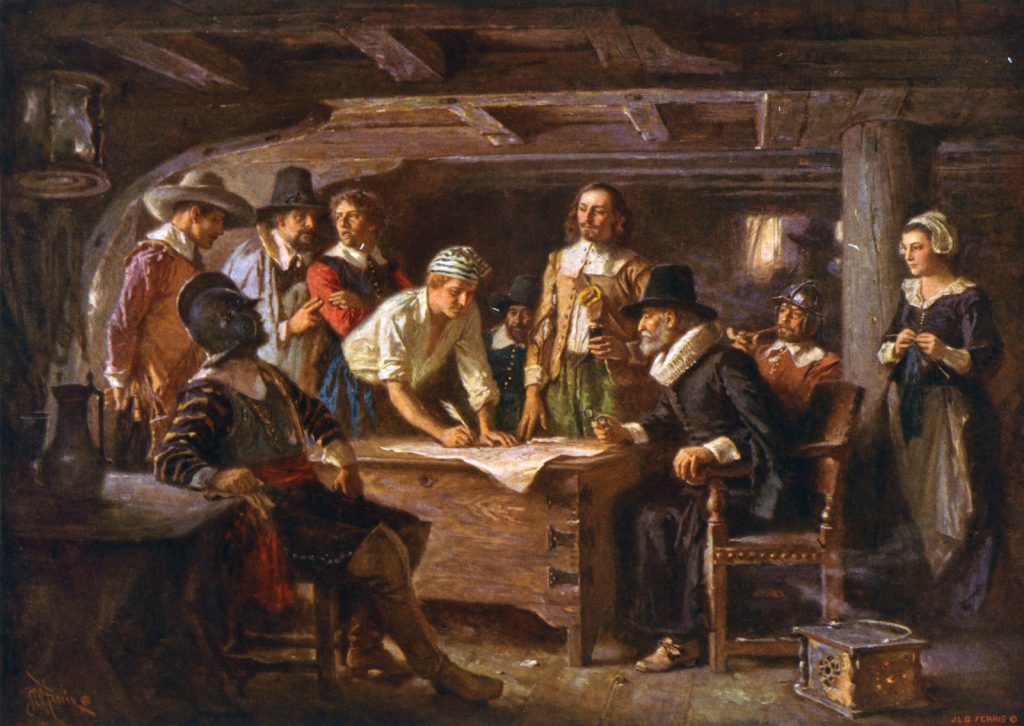The first Thanksgiving isn’t what you think.
No grand feast. No friendly Native Americans. And no turkey.
Just settlers gathering to pray 75 days after landing in a dangerous place following a rough and stormy trans-Atlantic trip.
That first Thanksgiving took place at today’s Berkeley Plantation on the banks of Virginia’s James River after 38 British settlers landed on Dec. 4, 1619, two years before the more famous festivities in Plymouth, Mass. They celebrated “a day of thanksgiving to Almighty God,” reading from the Book of Common Prayer. There was no grand meal. In fact, they likely fasted, a common practice during religious days in those times.
“Initially, a day of thanksgiving was something done by the church,” says Frank Clark, who supervises Historic Foodways, a Colonial Williamsburg department. “It was a religious thing. They would spend the day fasting and praying. There really is not a meal associated with it.”
They were following orders of the London-based Berkeley Company, which purchased 8,000 acres between what is now Williamsburg and Richmond to build a community of farms, storehouses, and homes. The company declared their arrival day must be yearly and perpetually kept holy. They followed those orders for two years until the native Powhatans attacked Berkeley on March 22, 1622, killing 347 people in several settlements.
Read more here.

The Real First Thanksgiving
1 Comment
Leave a Reply
Latest from Culture

Dangerous Left Wing Rhetoric
On Saturday, July 13, 2024, an assassin came within inches of murdering Donald Trump on a live broadcast. Democrat talking heads immediately split into two camps: some said Trump staged the shooting

Movie Review: Streets of Fire
Underrated. Yes, the acting is forced, the lines are flat, the sets limited, but it makes up for it by being awesome. It's more of a modern Western than anything.

Calvin Coolidge on Independence Day
Speech Given July 1926 We meet to celebrate the birthday of America. The coming of a new life always excites our interest. Although we know in the case of the individual that

Edward the Black Prince
"Valiant and gentle...the flower of all chivalry in the world at that time.”

The Weimar Years – Part 5
Summary of the German Revolution, 1918-1919.




5